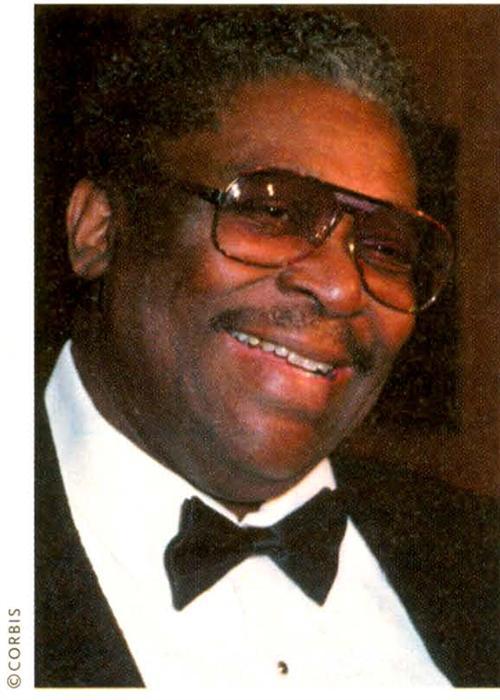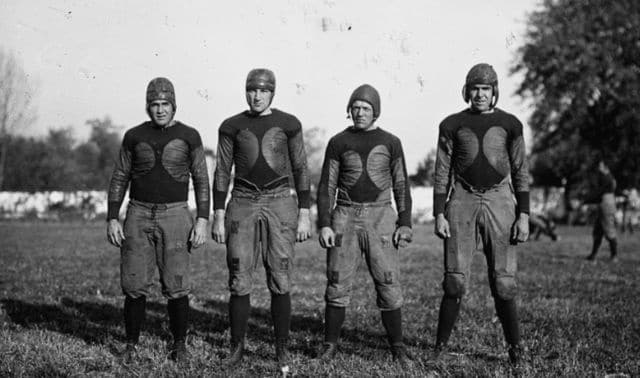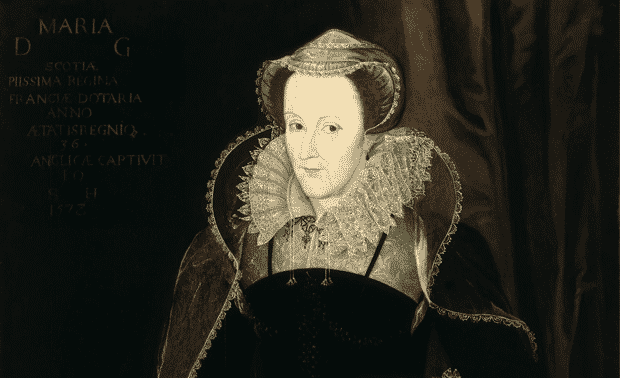 I was born in Mississippi in 1925, the son of a sharecropper. Like other young black men in Mississippi, I went to work on a plantation. I guess the earliest sound of blues that I can remember was in the fields while people would be pickin’ cotton or choppin’ cotton. Usually one guy would be plowin’ by himself — he’d take his hoe and chop way out in front of everybody else — and you would hear this guy sing most of the time. No special lyrics or anything. Just what he felt at the time. You would hear him sing something like, “Oh I wake up in the mornin’ ‘ bout the break of day.” And you could hear it on and on like that.
I was born in Mississippi in 1925, the son of a sharecropper. Like other young black men in Mississippi, I went to work on a plantation. I guess the earliest sound of blues that I can remember was in the fields while people would be pickin’ cotton or choppin’ cotton. Usually one guy would be plowin’ by himself — he’d take his hoe and chop way out in front of everybody else — and you would hear this guy sing most of the time. No special lyrics or anything. Just what he felt at the time. You would hear him sing something like, “Oh I wake up in the mornin’ ‘ bout the break of day.” And you could hear it on and on like that.
I also had an uncle named Jack Bennett, and Uncle Jack would go out in the early evenings, and on his way home at night you would hear him sing that same kind of thing: “If I don’t get home in the mornin’, things are gonna be bad.” And you could hear it all over the bayous, all around the many little places, and of course you could hear people say, “There goes Jack…he’s goin’ home.”
Those early sounds stay with me even today. When I sing and play, I can hear those same sounds that I used to hear as a kid. In our little neighborhood, there was nothing else hardly to do but sing, and usually we would go from house to house each week singing, like Monday night maybe we’d go to my house and Wednesday night we’d go to yours, and probably even Friday night because there wasn’t much else to do. It kept us close together, so that was another part of the blues that’s sorta like the church social workers. They kind of keep you up with everything that’s happening, and the feeling that you get from that is really togetherness.
The first time I left Indianola, Miss., for Memphis, I hitchhiked. It was right after the war, in ’46. I got to the Union Station in Memphis and that’s where I sat until the next morning because I didn’t know anyplace to go and didn’t know anybody. I knew I had my relatives there, but I didn’t know where they were or how to get to them.
The next day I started to look around and ask where certain people were, and I found where my cousin, Booker White, lived and went over to his house. Memphis was to me then like New York would be to the average person because I’d never seen a city as large as Memphis. Jackson, Mss., was as large as I’d ever seen and I was really like a kid in a candy store. I started looking at the big buildings and seein’ how people lived there. I saw streetcars for the first time. I had a chance to get up close to trains. In Indianola we would see maybe one engine, but when I got to Memphis I saw all of these big locomotives, and boy, these were very long trains and people ridin’ on ’em. All of this was new to me, and they told me that at this station people could leave and go to Chicago, New York or California, anyplace you wanted to go, even to New Orleans. I was just like a kid that had been turned loose in a zoo and all the animals were friends, so it was really fun for me.
Once I found my cousin, Booker White, well, then everything was really all right for me. I used to watch Booker play the guitar. I’d stand up by his knee and watch him. He had one of those slides. Just something about the way he played made me want to do what I’m doin’ now.



